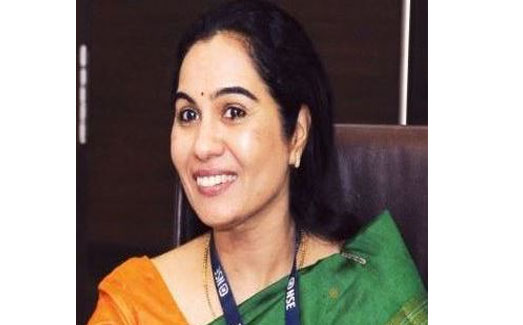INTERVIEW

Reema Mohan
Cheif Executive Officer, NSE Foundation
NSE Group works towards improving the financial wellbeing of people at large through a committed approach. Tell us briefly about the CSR approach and philosophy behind NSE Foundation. National Stock Exchange was created to change the market through technology, innovation, new products and service initiatives. The “Save” philosophy includes financial literacy, which is an extremely important life skill and essential to today’s digital age.
The “Seva” concept is established in the environmental consciousness of NSE along with CSR. To ensure a better tomorrow for future generations, NSE invests in renewable energy, water conservation and energy conservation with high standards of corporate governance and corporate social responsibility undertaken through the NSE Foundation. Our efforts are directed at a holistic improvement of the living conditions of people in low-income communities. We gauge their felt needs and develop interventions specifically suited to their contexts. This participatory approach to intervention planning helps to ensure sustainability and long-term impact in projects. We believe it is imperative for business to enable inclusive development while maintaining economic, social and environmental responsibilities.
What are the key areas NSE Foundation focuses on and how do your projects stand out from the rest in terms of innovation and mechanism?
NSE Foundation’s commitment towards our nation’s social development is translated into key focus areas, which are: Primary Education, Elder Care and Sanitation & Clean Drinking Water. The projects continue to drive the achievement of envisioned outcomes by fostering partnerships with mission driven organisations that have a strong local presence and participation. They reflect an innovative design using collaborative partnerships and are designed through a deep dive into societal issues to outline the goals that brought transformational results in these communities. Our efforts have been targeted at bringing in a sustainable change through participatory programmes that engage communities and beneficiaries.
How do you ensure the projects being carried out by NSE Foundation are sustainable?
One of the criteria that we apply while selecting projects, is the sustainability factor. This can be achieved through individual empowerment, community and collective participation as well as institutionalization of the processes by capacity building, behavioural change communication, setting up of systemic protocols, involvement of community members at the inception stage, establishing a demand at the community level so that government services reach the last mile, strengthening the local institutions etc. It is important that the stakeholders understand the importance of the project’s value proposition and take ownership of the same.
Tell us your CSR plans in the coming years and new initiatives (if any).
We have just adopted a district transformation strategy which is a model known to demonstrate concentrated impact and social change in one particular region over a fixed period of time as currently we undertake 42 projects across 9 States such as Maharashtra, Rajasthan, Uttar Pradesh, Bihar, Madhya Pradesh, West Bengal, Jharkhand, Telangana and Tamil Nadu. Before considering the District Transformation strategy, a comprehensive study was undertaken with inputs from experts and developmental organizations. 4 districts were identified basis the indicators detailed in the current 115 aspirational districts list by Niti Aayog. All listed districts were further assessed as per weighted averages for the indicators relevant to the core focus areas.
The district transformation plan offers opportunities to have focused, measurable outcomes and a balanced, integrated and meaningful development of district. As an initial start to the programme it is proposed that the interventions be implemented in one block and then scaled across all blocks in the districts. Also, we have recently included research and studies with recognized and well known educational institutions in the areas of economy policy etc. as one of the core focus areas.



















